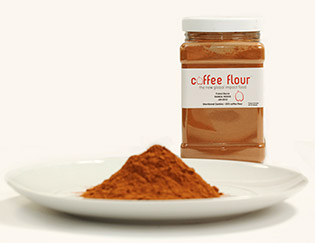“Lovely, Demented, Backwards, and Strange”: Why Every Food Story Is Fascinating

In spare moments, I’ve been reading Tom Nealon’s 15-blog-post-long history of condiments, a frantic and learned tour through more than two thousand years of vinegars, sauces, dressings, and spices. It’s tremendously informative and entertaining—Nealon studies rare cookbooks, and consequently possesses a massive repertoire of weird food facts and history.
Perhaps the most striking food story of the series for me has been his discussion (in the eighth post) of mole poblano and corn tortillas, Native American foods whose origins and importance Europeans largely forgot. Reflecting on that forgetfulness, Nealon comments:
Food history is littered with recipes and legends that seek to reinforce and explain each other. The great recipes, the sublime ingredients, demand an explanation; and the truth in these stories, like the truth in our family stories, can be lovely, demented, backwards, and strange. To paraphrase Joan Didion, we tell food stories in order to live. It is the interplay of prescription and description — often at odds, informing each other, humiliating each other, ignoring each other — that fascinates.

“Lovely, demented, backwards, and strange” may not be the descriptors you want to apply to your food product, but it’s the honest—and compelling—truth of so much that we call “food.” Think of the old question: “Who thought of eating that?” The answer to that question, if we can find it (or approximate it), is always, always fascinating—if sometimes unsettling. Whether it’s as new as flour made from a coffee by-product or as old as fish sauce, the origins of many foods can be, if you let yourself get hung up on them, shocking. A filet mignon or a ripe peach is pretty obviously delicious, but many of the foods we now take for granted took some inventing.
As food marketers, it can be easy to assume that we’d inevitably do better if we just had a more inherently desirable product. We wish for the labels to be cleaner and the flavors to be trendier. In fact, however, what Nealon’s history of condiments teaches us is that the best stories can come from the most difficult foods. Since marketers are fundamentally storytellers, we ought to be begging to promote everything “lovely, demented, backwards, and strange.”
Good stories are appealing, and the world of food, as one of the most vital and eccentric parts of human culture, boasts a preponderance of good stories.
Maybe, then, we don’t need to live in fear of consumers discovering the truth of our ingredients. Maybe we shouldn’t rush to reformulate when an ingredient or product receives some bad press, but should rather share its story more fully. (Here’s an example of doing just that from the nutraceuticals industry.)
As you can probably tell by now, at MarketPlace we’re obsessed with food stories—no matter how strange. In our thirteen years in the food industry, we’ve worked with companies across the full spectrum of the food industry, helping them tell the story of ingredients and products of a truly astonishing variety. We find every story fascinating, and with our help your customers will be able to say that too. Give us a call and let’s talk about how we can help you craft a better story, one that takes advantage of all that is strange and desirable in the history of your food
